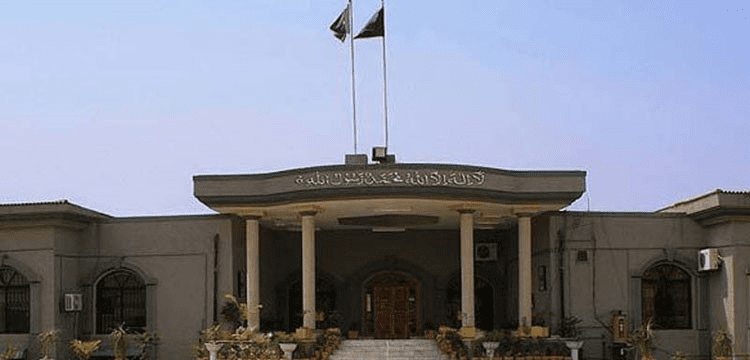[vc_row][vc_column][vc_column_text dp_text_size=”size-4″]After DG Law states that 120 days are needed for election preparation with the new UCs, the court notifies the parties in question.
ISLAMABAD: On Monday, the Election Commission of Pakistan’s bid to have the high court’s single-judge ruling suspended was denied by the Islamabad High Court (IHC) (ECP).
It should be noted that on December 28, 2022, at the Federation’s request, the ECP postponed the local body elections in Islamabad, cancelling the election date on the justification that the number of union councils is being raised to reflect the rise in population.
Despite the fact that Pakistan has a population of about 220 million, the IHC had questioned the validity of the claim and rejected the request for an immediate injunction on Pakistan Tehreek-e-(PTI) Insaf’s appeal while adjourning the hearing, the decision had still been made.
Justice Arbab Muhammad Tahir of the IHC later directed the ECP to hold the LG elections on Saturday, December 31, in accordance with schedule, and asked the federal government to help the electoral watchdog ensure the elections were held.
The court had invalidated both the December 27 notification from the ECP regarding the postponement of the elections and the December 19 notification from the interior ministry regarding the increase in the number of UCs. The federal government and the electoral watchdog both launched intra-court appeals against the ruling, and the ECP ultimately proved unable to abide by the high court’s directive.
The PTI, the co-petitioner in the case, had also filed a contempt plea against the commission’s chief, its other officials, and interior as well as cabinet secretaries. A two-member bench comprising Chief Justice Amir Farooq and Justice Saman Rafat Imtiaz heard the appeals today.
The ECP’s lawyer argued that the single bench had not taken the high court’s decision into consideration upon which the court inquired what had happened when the matter was sent to the electoral watchdog.
The lawyer informed the court that the ECP had ordered the postponement of local body elections in the federal capital on December 27 and that the verdict issued by the election regulatory body on December 28 was not challenged adding that “the verdict was final”.
The ECP’s director general of law also informed the court that on December 28 the election regulatory body had decided to delay the polls and that the order had been based on the December 27 order.
“The reasons cited by the ECP were not even considered by the single bench,” the lawyer argued.
The court was told by the additional attorney general (AAG) that “certain facts were not taken into consideration by the single bench.” The court questioned whether it would be possible to “order” the ECP and what would have happened if it had merely proclaimed the ECP’s decision to be unlawful.
The DG Law stated that “the ECP is free to make decisions independently.” In response to the CJ’s inquiries, the DG Law also provided the court with information stating that the ECP must announce a new date for elections if they are postponed for any reason and that new elections may be held within 120 days if the number of union councils is increased.
Later, the IHC issued notifications to parties regarding appeals pertaining to the elections for the local government of Islamabad and reserved its decision regarding the ECP and the federal government’s appeals against the order to hold local elections in the federal capital.[/vc_column_text][/vc_column][/vc_row]











